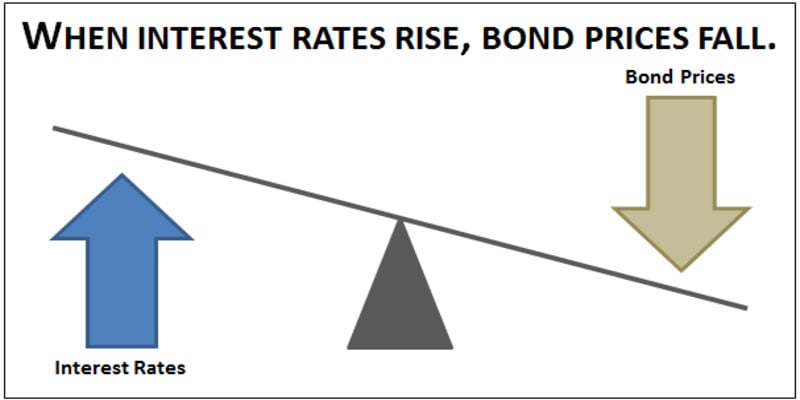Advertisement
Advertisement
Selling Shares Before the Ex-Dividend Date: Maximizing Returns
Dec 19, 2024 By Kelly Walker
In dynamic investing, seasoned individuals constantly seek strategies to optimize their returns. One such strategy that often goes unnoticed but can significantly impact your investment portfolio is "Selling Shares Before the Ex-Dividend Date." If you're unfamiliar with this concept, don't worry – we're here to break it down for you.
What is the Ex-Dividend Date?
Before delving into the intricacies of selling shares before the ex-dividend date, it's essential to understand the ex-dividend date. This date is crucial for investors who are keen on receiving dividends from the stocks they own.
The ex-dividend date is the cutoff point at which an investor must be a shareholder to receive the upcoming dividend payment. In other words, if you buy shares on or after the ex-dividend date, you won't be entitled to the next dividend payout.
Why Consider Selling Shares Before the Ex-Dividend Date?
Now that you understand the ex-dividend date, it's time to explore the strategy of selling shares before this date. This technique maximizes your dividend returns by leveraging the market's behavior.
Here's how it works:
Capture Dividends Without Holding the Stock: By purchasing shares just before the ex-dividend date, you become eligible for the upcoming dividend payout. You don't need to hold the stock for an extended period; you only need to own it on the ex-dividend date.
Profit from Market Behavior: In many cases, stock prices tend to rise in anticipation of the ex-dividend date as investors rush to buy shares to qualify for dividends. This upward price movement can allow you to sell your shares at a profit shortly after acquiring them.
Risk Mitigation: Selling shares immediately after receiving the dividend can be a prudent risk management strategy. You lock in your dividend income and minimize exposure to potential market fluctuations.
When Does It Make Sense to Sell Shares Before the Ex-Dividend Date?
While selling shares before the ex-dividend date may sound enticing, it's not a one-size-fits-all strategy. Timing is crucial, and there are specific scenarios where it makes sense to employ this tactic:
Short-Term Investors: For individuals with a short-term investment horizon, selling shares before the ex-dividend date can be an efficient financial strategy. This approach allows short-term investors to seize dividend income without the obligation of long-term stock ownership. It provides flexibility and aligns with their preference for quick returns, offering a practical alternative to those not inclined to hold stocks for extended durations.

Volatility Expectations: When evaluating the timing of selling shares before the ex-dividend date, it's essential to factor in your expectations regarding stock market volatility. If you foresee substantial price swings in the wake of the ex-dividend date, opting to sell your shares beforehand becomes a prudent strategy. This can shield you from potential losses that may arise from the expected market turbulence.
Cash Flow Needs: Cash flow needs can be addressed by selling shares before the ex-dividend date. This strategy offers rapid access to dividend income, which is particularly beneficial during financial emergencies when quick funds are essential.
Tax Planning: Tax planning is crucial to selling shares before the ex-dividend date. It's worth considering how your tax situation might affect your decision. Sometimes, selling before the ex-dividend date can be advantageous for tax optimization. For personalized advice, consult a tax advisor.
Potential Drawbacks and Risks
While selling shares before the ex-dividend date offers enticing benefits, knowing its potential drawbacks and risks is essential.
One of the primary challenges lies in market timing, as accurately predicting stock price movements can be daunting. If the expected price increase around the ex-dividend date doesn't materialize, you might miss out on potential gains. Additionally, frequent buying and selling of shares can lead to higher transaction costs, potentially eroding profits.
Tax implications also come into play, as short-term capital gains may be subject to higher tax rates than long-term gains, depending on your country's tax laws.
Lastly, continuously employing this strategy may result in a loss of stock ownership, which could mean missing out on the long-term benefits of capital appreciation. Careful consideration of these drawbacks and risks is essential when deciding whether to incorporate this strategy into your investment approach.
Tips for Successful Implementation

Consider these valuable tips to successfully implement the strategy of selling shares before the ex-dividend date. First and foremost, conduct thorough research and analysis of the stocks you're considering for this strategy, focusing on companies with a history of stable dividends and price increases around the ex-dividend date.
Diversification is key, so avoid concentrating your investments in one sector or industry. Staying informed is crucial; keep an eye on corporate announcements and dividend schedules to ensure you don't miss the ex-dividend date.
Lastly, consult with a tax advisor to understand the tax implications of your strategy and ensure compliance with tax laws. By following these guidelines and carefully assessing your investment goals and risk tolerance, you can effectively leverage this strategy to enhance your dividend income and navigate the intricacies of stock investing.
Conclusion
Selling shares before the ex-dividend date is a strategy that can help you maximize your dividend income and potentially profit from market behavior. However, it's not a one-size-fits-all approach and comes with its own set of risks and considerations.
Before implementing this strategy, carefully assess your investment goals, risk tolerance, and time horizon. Additionally, stay informed about market conditions and seek advice from financial experts or advisors.
When used strategically and with careful consideration, selling shares before the ex-dividend date can be a valuable tool in your investment arsenal, helping you achieve your financial objectives while navigating the complex world of stock investing.
On this page
What is the Ex-Dividend Date? Why Consider Selling Shares Before the Ex-Dividend Date? When Does It Make Sense to Sell Shares Before the Ex-Dividend Date? Potential Drawbacks and Risks While selling shares before the ex-dividend date offers enticing benefits, knowing its potential drawbacks and risks is essential. One of the primary challenges lies in market timing, as accurately predicting stock price movements can be daunting. If the expected price increase around the ex-dividend date doesn't materialize, you might miss out on potential gains. Additionally, frequent buying and selling of shares can lead to higher transaction costs, potentially eroding profits. Tax implications also come into play, as short-term capital gains may be subject to higher tax rates than long-term gains, depending on your country's tax laws. Lastly, continuously employing this strategy may result in a loss of stock ownership, which could mean missing out on the long-term benefits of capital appreciation. Careful consideration of these drawbacks and risks is essential when deciding whether to incorporate this strategy into your investment approach. Tips for Successful Implementation Conclusion
Who Are The Leading Suppliers For Tesla?

Why 3x ETFs Are Riskier Than You Might Think

Deciphering Contingent Convertibles (CoCos): Unveiling the Secret Saviors of Banks

Retiring at 56: How Much Money Do You Need to Make it Happen

How Venture Capitalists Make Investment Choices?

Deciphering Contingent Convertibles (CoCos): Unveiling the Secret Saviors of Banks

The Inverse Connection Between Interest Rates And Bond Prices

10 Best Landlord Insurance Companies



